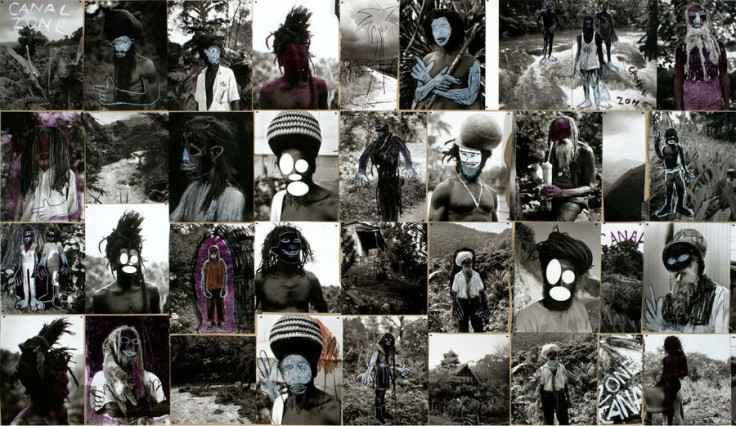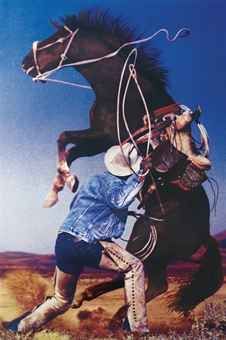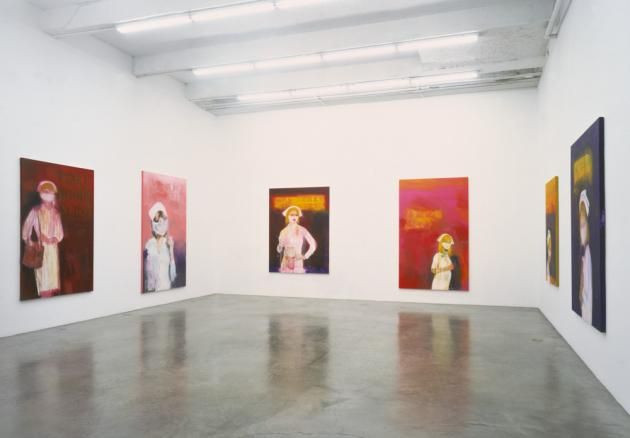Three Times Richard Prince Appropriated Others' Work
Contemporary artist Richard Prince has made a career of appropriating photographs -- and his controversial methods are evolving. What he once did with pulp novel covers and cigarette ads he has now done with Instagram photos: barely altering them for display as fine art.
Controversial or not, he has been lauded in the greatest galleries and museums in the world. Not alone in his methods, Prince is an emblem of the last few decades in which aggregating, reposting and retweeting are increasingly accepted forms of self-expression.
His name trended this week as some of the subjects of his series “New Portraits” -- in which he printed and enlarged other people’s Instagram posts onto canvasses and sold the finished product for tens of thousands of dollars -- spoke out.
Here are three other times Prince has walked a fine, fine intellectual property line:
1. The most famous instance of Prince’s methods drew attention because he was challenged in court -- and largely prevailed. Prince was initially found to have infringed photos from photographer Patrick Cariou’s book "Yes, Rasta," which he incorporated into collages The New York Times called “raucous, sometimes wildly funny” in their coverage of the case.
The 2011 decision was overturned two years later on appeal, with the exception of five works. Cariou v. Prince was settled in 2014. The Gagosian exhibited this image from the challenged series, which Prince-- who was born in the Panama Canal Zone -- called “Canal Zone.”

2. Prince’s ‘Cowboys’ series involved “rephotographing” the Marlboro Man, a popular character in cigarette ads. These paintings have fetched more than a million dollars at auction. The piece below sold at Christie’s last year for $3.7 million.

Here’s another from The Metropolitan Museum of Art collection:

3. In another series, Prince zeroed in on the archetypal nurse notated by her white sneakers and alluring eyes on the cover of dime romances and thrillers. His aptly titled “Nurse” series was displayed by the Barbara Gladstone Gallery in 2003, of which the curators said, “One increasingly becomes aware of the sneaking suspicion that something sinister lies within these emblems of caring and nurturing.”

It’s unclear whether Prince takes himself that seriously. When a man began painting copies of the Nurse paintings, Prince took it in stride, telling New York Magazine “I think it’s funny. I actually bought one; I thought it was pretty close.”
He also addressed younger artists adopting his methods: “It would be strange for me to think I’m being ripped off, because that’s what I do!”
© Copyright IBTimes 2024. All rights reserved.





















